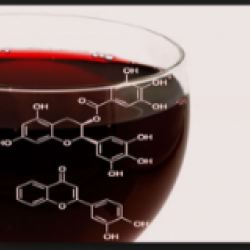
When the word "natural" gets attached to any food or beverage, the chances for misunderstandings and faulty assumptions taking hold increase dramatically. Mostly, that's because the word means different things to different people.
And for those who don't examine these types of products closely, it's very likely the impression one receives is that "natural" is "better," and moreover, the process creating that natural product must be "healthier."
Of course, often that's not the case at all. Take "natural wine," for example.
While it's been around since roughly the 1980s, the popularity of these wines is growing so it's more common to come across them. And of course, with any new product, there are the early adopters who sing its praises, and, in one form or another, wonder how they could have lived without it for so long. That perspective is prevalent with consumers of this wine, who love the idea that it's "more pure" and less adulterated than conventional wines that are universally available.
So what are natural wines? What's in them? And more to the point, what's not?
The category's overarching characteristic is that they do not contain additives. These additives can range from winemaker to winemaker, but they're generally felt to include sugar(s), extra yeasts and other "fining" agents -- in some cases egg whites, volcanic clay or fish bladders -- that serve to refine the wine's drinkability and texture.
In addition to those, the primary offender of all additives are sulfites, which act as a preservative and give the wine its shelf life. As a result, "the most prominent signifier of naturalness," as noted recently in an article on natural wines, "and the primary reason many people take their first sip, is the lack of additives." And when these sulfites are removed, what happens is that the final product varies widely from bottle to bottle. Which can make drinking natural wine an unpredictable experience, both good and bad.
"Tasting natural wines does require a recalibration of one's palate and expectations," as noted by a reviewer focusing on the subject in Food & Wine. Here's how one bottle called Blonde was described: "It was the most unusual wine I have ever had: a cross between hard cider, beer and sparkling wine. ... It was the milkiest-looking wine I've ever drunk. As it settled in the glass, what I took to be yeast particles traced the equivalents of vapor trails through the liquid. You would not serve it to the uninitiated without ample warning. But it was delightful: Fizzy, full of tart apple and pear flavors."
Meanwhile, other drinkers regard sulfite-free wine like they do blue cheese: Some love it while others are repulsed by it.
So it seems that when sulfites and other additives are removed from the process, we have a whole different product on our hands. Which is fine. But does the removal of sulfites make it "better" wine, or a "healthier" wine? To answer that, let's first examine what sulfites are.
In wine, sulfites (known as sulfur dioxide, or SO2), are a chemical compound produced (yes) naturally during the fermentation process. They prevent oxidation and accumulation of bacteria, which prevents wine from spoiling. Sometime they aren't even added at all.
Are sulfites so prevalent in wine that they pose a health concern? Unless the consumer suffers from asthma (roughly 1 percent of the population is afflicted) and is allergic to them, the answer is a distinct "no." In fact, there should be little alarm, considering "the minuscule amounts found in modern wines – typically 20-200 [parts per million] PPM," reports Decanter.com. "Compare that to a handful of dried fruit, which will have been dosed with anywhere from 500-3,000 PPM."
OK, what about hangovers? Does the sulfite consumption cause those head-hurting mornings, like many wine drinkers believe? Nope -- there's no medical evidence that a connection exists between the two.
Part of the reason that sulfites are widely, yet mistakenly, shunned may have to do with a "Contains Sulfites" declaration that's legally required to appear on every bottle sold in the United States for wine that contains even the smallest amounts. "Only those with less than 10 parts per million (PPM) are exempted," according to the Decanter analysis. "[A]nd here’s the rub – the fermentation process can produce more than that naturally, without any added SO2, meaning that even many ‘no added sulfite’ wines must display the offending words on the label."
As a result, many people -- wrongly -- take that label to mean that if there's something in the bottle that I'm being told to be aware of, it therefore must be bad for me. And that's simply not the case, just another labeling law that's obscuring the truth.
If natural wines are your thing, and you're drawn to the unconventional nature of not being quite sure what you're going to drink from one bottle to the next, than fantastic. Drink up. There's nothing wrong with that.
But if you're making the switch because you fear the presence of non-threatening sulfites, or believe your hangovers will end, or you think this vino is a healthier choice, then you need to pour out those ideas and uncork a new bottle of reason. Because natural wine is not better, it's just different.
